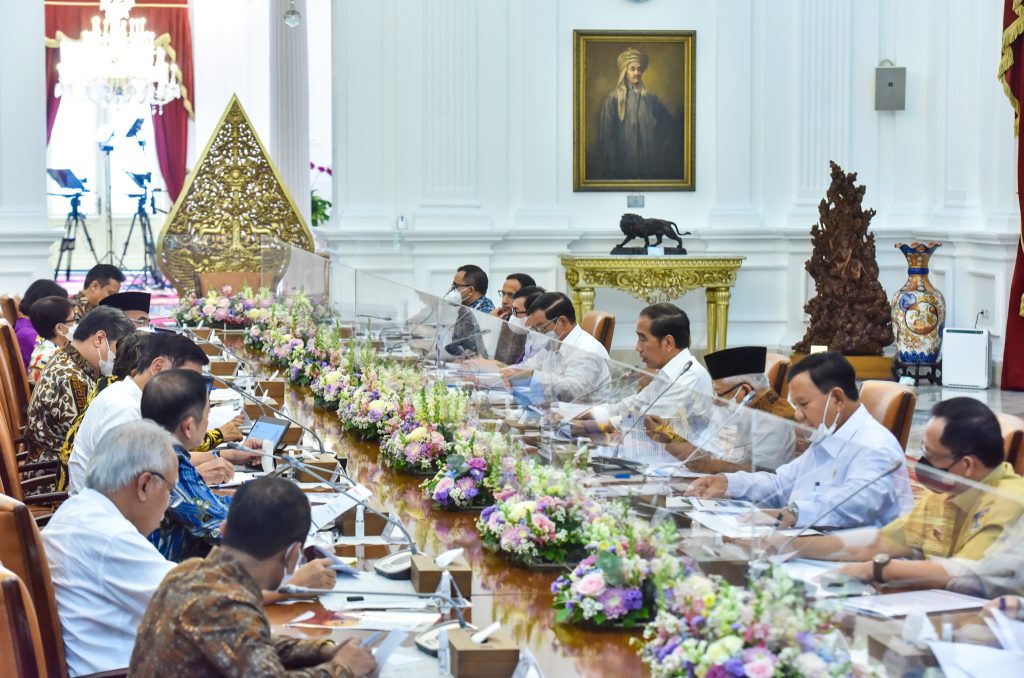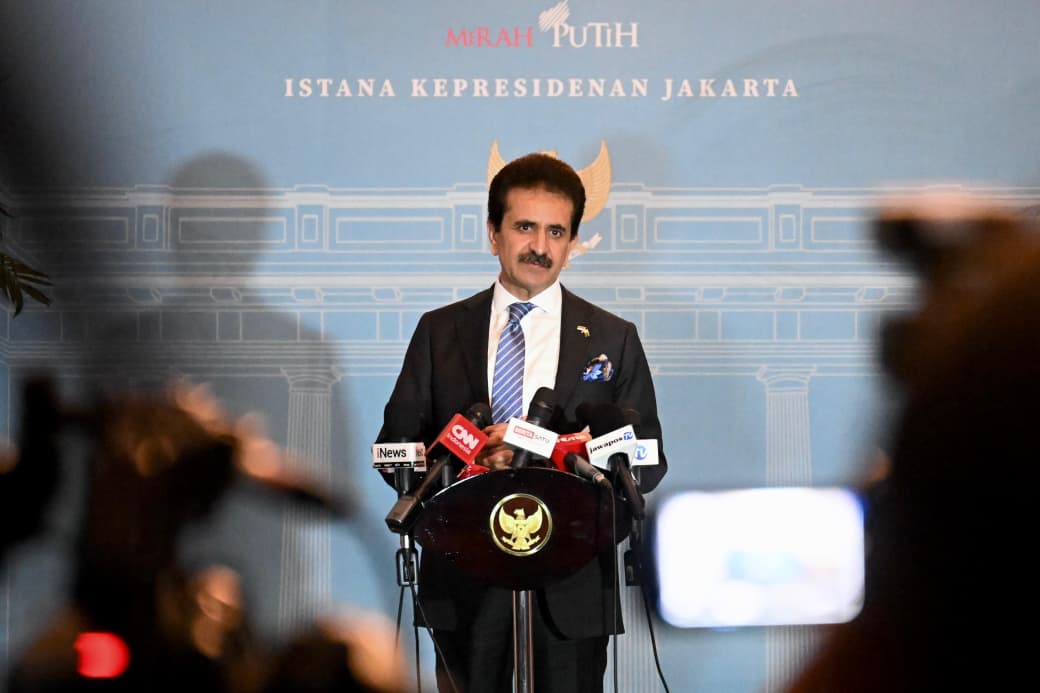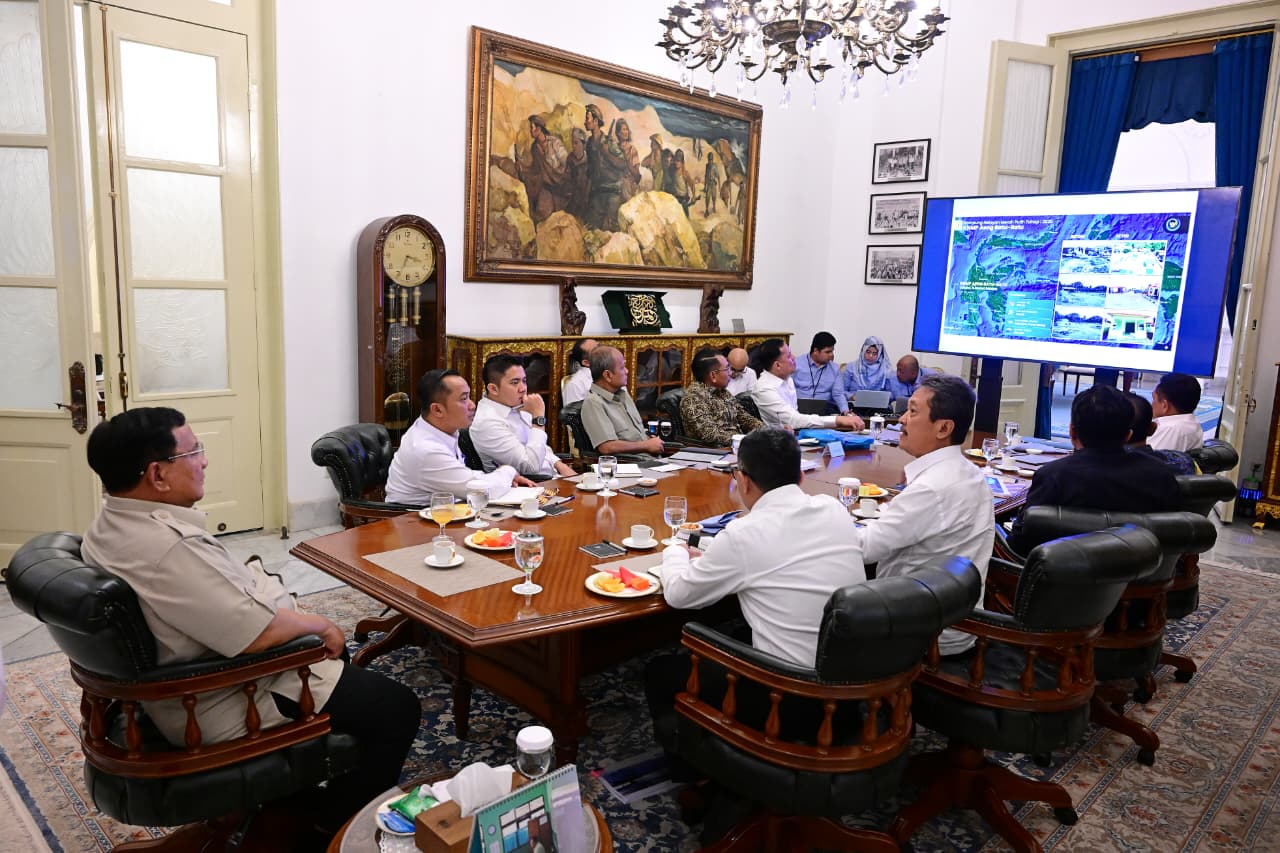President Jokowi Calls for Grand Strategy for Indonesia’s 2045 Vision

President Jokowi leads a limited meeting on the midterm evaluation of RPJMN for 2020-2024 and Drawing Up of the First Draft of RPJPN for 2020-2024, at the Merdeka Palace, Tuesday (03/28). (Photo by: PR of Secretariat Cabinet/Jay)
President Joko “Jokowi” Widodo urged his Cabinet to design a grand strategy to realize Indonesia Emas (Golden Indonesia) 2045 vision.
The President made that statement during a limited meeting on the midterm evaluation of National Medium-Term Development Plan (RPJMN) for 2020-2024 and Drawing Up of the First Draft of National Long-Term Development Plan (RPJPN) for 2020-2024, at the Merdeka Palace, Jakarta, Tuesday (03/28).
Minister of National Development Planning (PPN)/Head of the National Development Planning Agency (Bappenas) Suharso Monoarfa who also attended the limited meeting said that the National Long-term Development Plan serves as a strategic direction to guide stakeholders but it must be supported with a grand strategy.
Therefore, the Bappenas proposed a transformation in socio-economic affairs and governance as a strategy to boost development and manifest Golden Indonesia 2045 Vision: Sovereign, Advanced and Sustainable Maritime State.
“We have proposed the framework as well as content outline that will be discussed and used to write an academic paper in a process to draw up the bill of RPJPN,” he added.
He went on to say that the RPJPN will become a guide for all components of the nation in realizing Golden Indonesia 2045 Vision.
“We have also conducted a review on the development goals of the previous two decades. We also take into account global megatrends and our basic capital for development, and of course the challenges that we must respond to in the future with a new paradigm, as well as imperative and cohesive breakthroughs,” he explained.
On that occasion, the Minister also said that Indonesia has yet to escape from the middle-income trap. During the past twenty years, Indonesia’s economy only grew by 4.01 percent, on average. The figure was then able to increase to 5 percent in 2022.
“We told [the President] that in the strategy drawn up by the Bappenas, Indonesia’s economic growth must reach six percent, so we are able to escape the middle-income trap since we have been trapped for thirty years,” he said.
Based on an evaluation, there are a number of determinants of Indonesia’s slow economic growth, such as low total factor productivity and disparities in GDP per capita in many provinces. Suharso underscored that Indonesia must make the best use of its demographic bonus to increase the GDP.
“All countries must utilize their demographic bonus to increase the Gross National Income (GNI). South Korea, for example, has successfully leaped from 3,530 (US$ per capita) to 35,000 US$ per capita and the country still has five years to enjoy its demographic bonus,” he stated. (FID/UN) (RAS/MMB)








